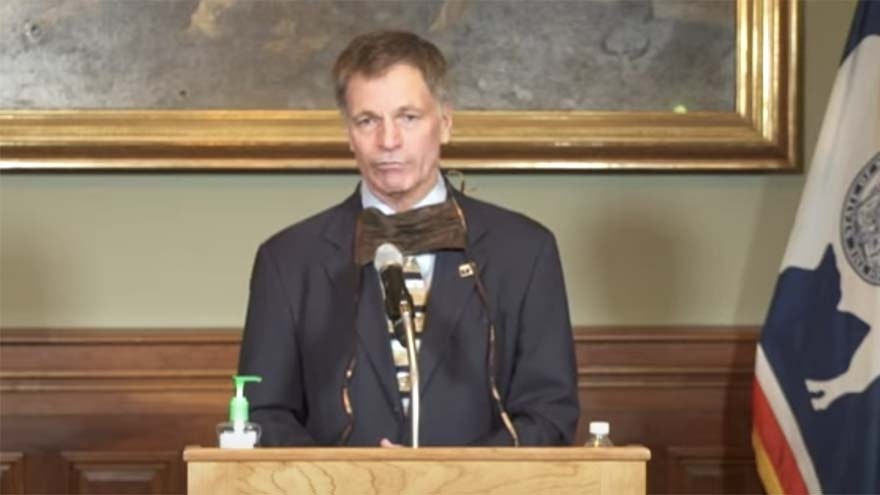While it is too early to think about easing some of the restrictions put in place to prevent the spread of coronavirus in Wyoming, the state is already working to determine what things will look like after the illness is no longer a threat, Gov. Mark Gordon said Wednesday.
Gordon, speaking during a news conference, said the state officials have begun discussing what kind of changes Wyoming can expect after the public orders that were issued in March are allowed to expire.
“We are going to emerge into a new reality, a new economy,” he said. “Social distancing is not going to go away. We need to start thinking about what our schools will look like next year. I’ve been talking with the judicial part of our government to make sure we understand what trials are going to look like. So we are all talking about what our new reality is going to look like.”
Gordon’s comments came after state officials confirmed the state’s second death attributed to COVID-19.
Gordon said the death reported Wednesday in Laramie County, along with one reported last week in Johnson County, emphasizes why it is so important that Wyoming residents adhere to the orders he issued in March that closed schools and some businesses and limited gatherings to fewer than 10 people.
“These deaths are a reminder of why we must take the orders we have in place seriously,” he said. “I do not want to see anyone have the experience that these two families have had to endure.”
Gordon said Wyoming residents have done a good job of following guidelines and the public health orders designed to slow the spread of coronavirus, but he added it is important they continue to do so.
“It is critical that we continue to stay the course and adhere to the public health orders that are currently in place,” he said. “It still remains too early to see if we are near the peak of these illnesses yet. We must all follow the recommendations in place to reduce the likelihood of large clusters of new cases.”
Gordon and Dr. Alexia Harrist, the state health officer, said the decision on when to lift the restrictions will be based entirely on data showing there is no longer a public threat to the move.
“As we consider our steps moving forward … we will continue to use data to inform our decisions,” Harrist said. “There is not one single data point that we can rely on, but rather we need to consider the entire picture. It’s important to remember that it takes more than a couple days worth of data to be able to draw conclusions about what is happening with the outbreak in Wyoming. We need to see sustained trends to make sure that we’re basing decision on reliable information.”
Gordon also briefly addressed the state’s budget picture, which has been complicated by steep declines in mineral tax income and the overall economic slowdown caused by the coronavirus. A report issued earlier this week predicted that tax income for the state could decline by up to $2.8 billion between now and the end of June of 2022.
Gordon on Wednesday ordered department heads to start looking for ways to cut expenses, put a hiring freeze in place and blocked any contracts for state work worth more than $100,000.
“There’s so much that our state does for the people of Wyoming that is critical,” he said. “But it is unlikely that our budget picture is going to be able to support the program levels that we’ve had in the past. So it seems a good time for directors to start looking around for potential reductions that we’ll have to make.”
Gordon also said he has spoken with the Wyoming Community Development Authority to determine if some kind of assistance program can be established to give relief those paying rent or mortgages who may have lost their source of income. At the same time, he added, he does not want to leave landlords unable to pay their own bills.
“We’ve been very concerned about that from the start,” he said. “Our remedy here is designed at shoring up the entire system and making sure people who are facing evictions or foreclosures are somehow given relief. We’re not shifting that burden to landlords. It’s important that our economy stand up in full.”





